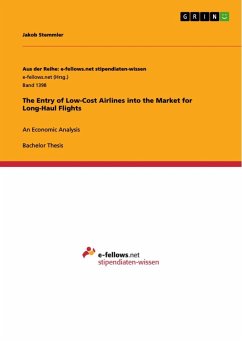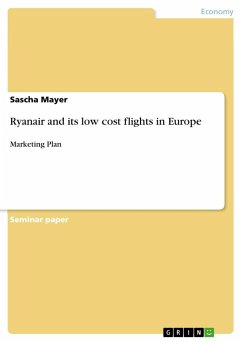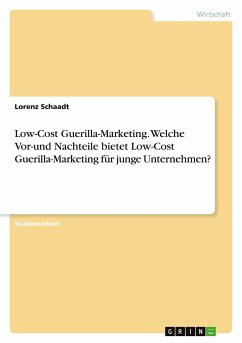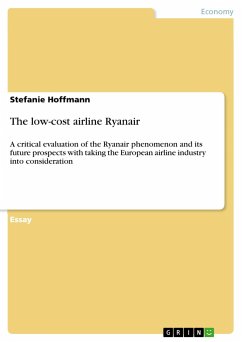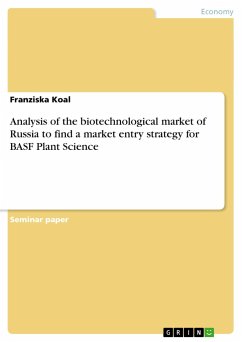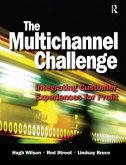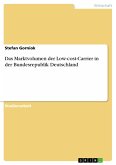Bachelor Thesis from the year 2013 in the subject Business economics - Offline Marketing and Online Marketing, grade: 1,3, University of Mannheim (Fakultät für Rechtswissenschaft und Volkswirtschaftslehre, Abteilung Volkswirtschaftslehre), language: English, abstract: The entry of low-cost carriers (LCCs) in the early 1990ies revolutionized the European airline industry. Before the LCCs entered the European short-haul market, incumbent full service carriers (FSCs) were able to operate relatively unhindered. Supported by many deregulations, LCCs set their focus on a cost base as low as possible, so they were able to offer fares tremendously lower than incumbent players. Even though they took some market share from the FSCs, the main success was based on the ability to reach new customer segments. Passengers, previously travelling by car or long-distance busses, took advantage of newly affordable airline fares and were willing to incur limited comfort.Now, around 20 years after thefirst entry of European LCCs, the short-haul market is not expected to continue growing significantly. Hence, if the LCCs want to continue their expansion, they need a 'new market', and it seems just like a question of time until they add long-haul routes to their route network. Nevertheless, the long- and short-haul market are comparable just to a limited amount. As we will see in the following analyses and discussions, several specific characteristics require fundamental changes in the current LCC business model, which is optimized for short-haul operations.The focus point of this thesis is the development of an auspicious entry mode, based on theoretical economic frameworks. In comparison to the short-haul market, competitive interactions between incumbent FSCs and entering LCCs are expected to be much more intense on long-haul routes. This is based on the fact that LCCs will not be able to sustain their high cost advantages also on long-haul routes. For long-haul flights it is also not possible to reduce provided comfort and additional services in such a way the LCCs currently do on their short-haul operations. Hence, on long-haul routes, entering LCCs and incumbent FSCs will be active much more in the same market than they currently do, which implies a much higher degree of competition. This provides several points of contact for game theoretical considerations, as we will see in the following chapters.
Hinweis: Dieser Artikel kann nur an eine deutsche Lieferadresse ausgeliefert werden.
Hinweis: Dieser Artikel kann nur an eine deutsche Lieferadresse ausgeliefert werden.
